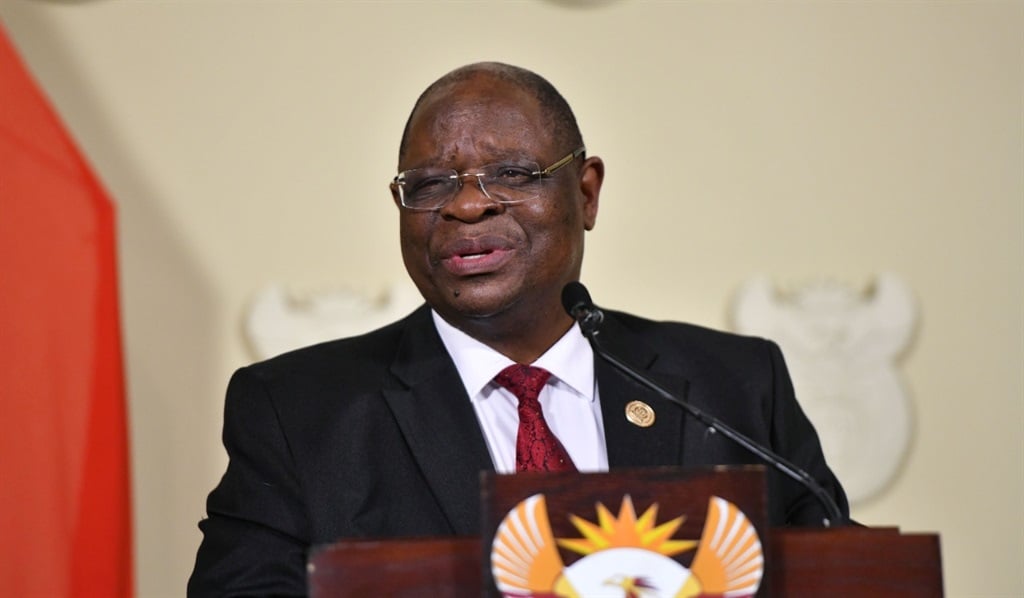
Chief Justice Raymond Zondo said that the levels of corruption in the country have reached unacceptable proportions, and unless something drastic and effective is done soon, “we will have no country worth calling home”.
Chief Justice Raymond Zondo said the planning for state capture was likely to have taken place before 2010 or the 2009 ANC Polokwane elective conference that elected Jacob Zuma as president of the party.
Zondo was speaking on the first day of the anti-corruption summit hosted by the National Anti-Corruption Council (Nacac) in Boksburg on Wednesday.
During the state capture commission, which he chaired, evidence pointed to 2010 as the time known for the first incidence of the “Zuma/Gupta” state capture programme.
He said:
I don’t think it started in 2010. I don’t think it started in 2009. There’s a good chance it started before the Polokwane conference. If you read some of the books on state capture in South Africa, you’ll know that the Guptas were at the Polokwane conference or in the vicinity. But if you look at the evidence that was given at the commission, we talk about 2010 and whatever else may have happened behind the scenes.
He added that the levels of corruption in the country had reached unacceptable proportions and that unless something drastic and effective was done soon, “we will have no country worth calling home”.
Multi-pronged approach
Nacac chairperson Professor Firoz Cachalia said fighting corruption would require a multi-pronged approach. Cachalia said law enforcement needed to be strengthened.
Government adopted an anti-corruption strategy two years ago, and Nacac has been set up to advise President Cyril Ramaphosa on implementing.
“We need to strengthen prevention and we need to think about and change behaviour in our society to the extent that it implicitly supports corrupt behaviour. We need to mobilise our people to become part of this process because the international experience show that the involvement of our people is the critical factor.
READ: Ramaphosa’s unfunded corruption council proves anti-graft fight gets little more than lip service
“We need to set up new institutions. This is a complex task, you need skills, you need budgets, you need to get it right because you can set up institutions that fail and anti-corruption institutions that are captured by the corrupt. You can set up institutions in a way that they disrupt other institutions, for instance. We can’t think about setting up a new institution without thinking about how they affect the SIU or the impact it will have on the Directorate of Priority Crime Investigations (DPCI).”
There has been public frustration about the seemingly lack of successful prosecution of individuals involved in state capture. This comes after the NPA failed in the Nulane case seen as a test case for state capture prosecution.
Head of the DPCI or Hawks Lieutenant General Godfrey Lebeya denied that the quality of investigations and dockets given to prosecutors were part of the reason for the delays or lack of successful prosecutions of allegedly corrupt individuals said to be involved in state capture.
He said the work of the Hawks was to secure the attendance of suspects to court after which it was out of their hands:
We’ve got good investigators, among them doctors. We have advocates and other people qualified in law who may not be investigating themselves, but they do assist investigators. Where we need accountants, we also have a small body of chartered accountants and use external ones. So, I am confident that working as a team of investigators and prosecutors will actually determine if they are happy with the content of what we’ve gathered.
“Mine is to secure the attendance of the suspects to court once we have done that, then it becomes the work of many others.”
READ: NPA adamant it is making progress on state capture prosecutions, despite delays
Special Investigating Init (SIU) head Advocate Andy Mothibi said recovering monies the state has lost through corruption was a key element of discouraging corruption. When individuals know that they would not get away with corruption, even if they resign, would go a long in preventing corruption.
He said: “The phenomenon that we’ve seen is that when we investigate, we find wrongdoing people resign, so what we’re doing is that we are freezing their pensions so that we hit them where it hurts and take the money that they would have worked for over a long period while at the same time being involved in wrongdoing.
We are then freezing the pensions so that, ultimately, when we prove the wrongdoing, we can get the pensions forfeited to the state. We believe that by doing so, it will be effective consequence management.
On Wednesday, the SIU and Transnet were granted an interdict that prevented two Transnet executives accused of corruption from withdrawing their pensions.






Recent Comments